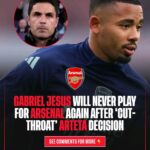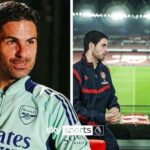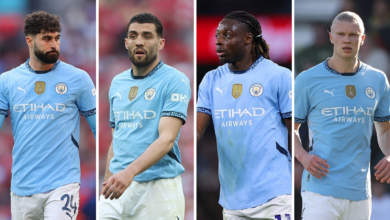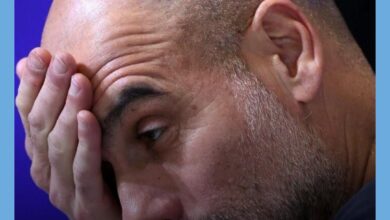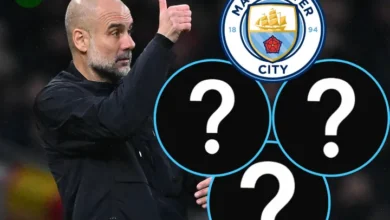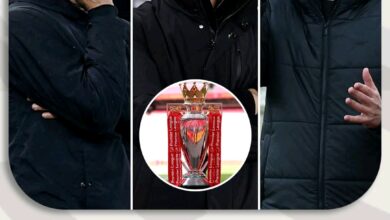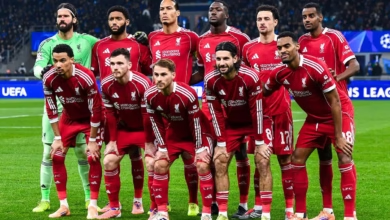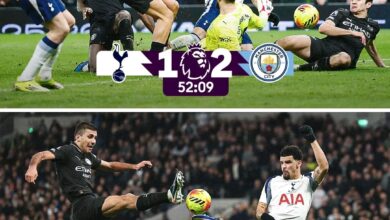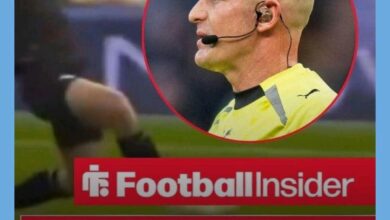Arsenal transfers: Mikel Arteta defends Kai Havertz after horror show in FA Cup loss to Man Utd, with Gabriel Jesus also injured
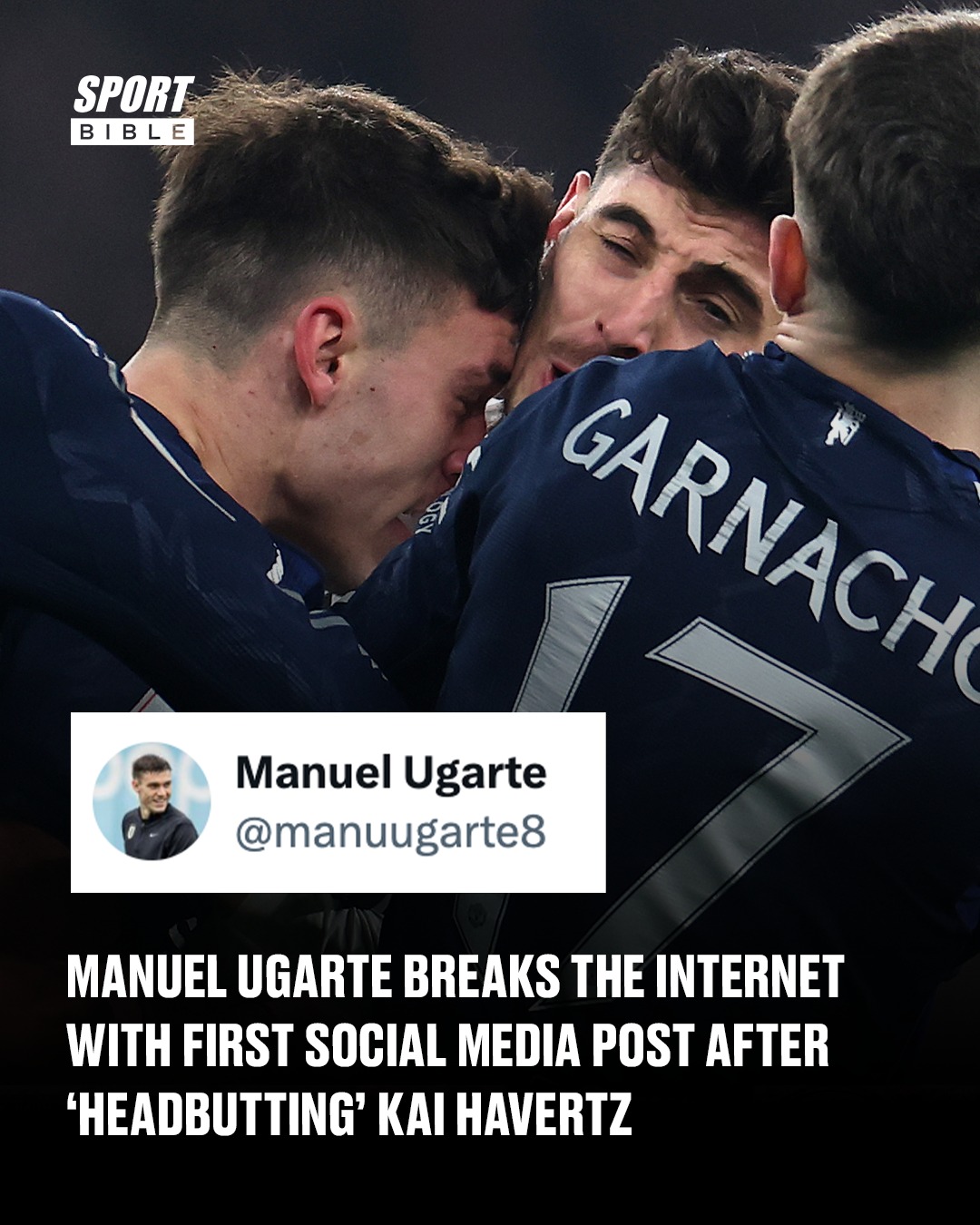
Mikel Arteta has insisted he still loves Kai Havertz at the end of what has been a nightmare week for the German forward, during which he missed excellent chances in two costly defeats. Havertz’s recent struggles in front of goal have drawn significant scrutiny from fans and pundits alike, with many questioning his role as Arsenal’s primary striker. These frustrations were amplified after Havertz missed a free header in Arsenal’s 2-0 defeat to Newcastle United in the first leg of the Carabao Cup semi-final. Just days later, he endured another disappointing showing in front of goal during Arsenal’s FA Cup clash against Manchester United, a game that ended in a penalty shootout defeat for the Gunners.
Arsenal’s difficulties in converting chances this season have been well-documented, and Havertz’s inability to consistently deliver as Arteta’s preferred striker has only fueled the criticism. With Gabriel Jesus sidelined due to injury, Havertz has been thrust into the central striking role—a position that doesn’t come naturally to him. His performances in that role, however, have not alleviated concerns about Arsenal’s ability to capitalize on their attacking opportunities. Yet, Arteta has made it clear that he remains unwavering in his support for Havertz, choosing to focus on the positives and the potential for growth within his squad.
When asked about his message to Havertz after the disappointing defeat to Manchester United, Arteta responded by expressing his admiration and affection for the player. “To him and to all of them: that I love them, that we all love them. Individually and collectively, they are a joy,” Arteta said. His words reflected a deep sense of belief in his players, despite the setbacks they have faced. Arteta acknowledged the frustration of recent results but emphasized the remarkable effort and dedication shown by his team. “What this team produces every three days is incredible regardless of what happens. I am not going to lose sight of that, because of a result or two because we didn’t deserve it,” he added. For Arteta, the key lies in maintaining perspective, focusing on improvement, and fostering confidence within the squad.
Arteta also addressed the broader narrative surrounding Arsenal’s current issues in attack. When pressed on whether the club might explore signing a new striker during the January transfer window, Arteta offered a measured response. He refrained from committing to any transfer activity while reaffirming his faith in the players at his disposal. “I understand that [question], but I cannot love our players more, and we very much focus on the players we have to perform at the highest level,” he said. Arteta’s words were both a show of loyalty to his squad and an acknowledgment of the challenges they face as they seek to find consistency in front of goal.
The manager’s steadfast support for Havertz and the team as a whole highlights his approach to navigating periods of adversity. Arteta recognizes the emotional and psychological components of football, particularly when it comes to restoring confidence in players who may be struggling. “What we can do better, let’s try to do it. But it’s difficult to achieve; it’s an emotional part, it’s something related to confidence as well,” he explained. This holistic perspective underscores Arteta’s commitment to fostering a positive environment, even when results on the pitch fall short of expectations.
As Arsenal grapples with its attacking challenges, the spotlight remains firmly on Havertz and the question of whether he can adapt to the demands of leading the line for a club with title aspirations. Havertz’s journey at Arsenal has been marked by moments of promise but also periods of inconsistency. His transition to a central striking role represents a significant adjustment, both tactically and mentally. Arteta’s decision to back Havertz despite these struggles is a testament to his belief in the player’s potential and his understanding of the broader developmental process.
For Havertz, the coming weeks will be crucial as he seeks to repay Arteta’s faith and silence his critics. The German international possesses undeniable talent, as evidenced by his past performances at Bayer Leverkusen and Chelsea, where he showcased his technical ability, versatility, and knack for scoring important goals. However, translating that potential into consistent contributions for Arsenal remains a work in progress. Havertz’s ability to adapt to the rigors of the Premier League and develop a more clinical edge in front of goal will likely determine his long-term success at the club.
Arsenal’s struggles in attack are not solely attributable to Havertz, however. The team’s overall lack of ruthlessness in front of goal has been a recurring theme this season. Despite their creative prowess and ability to dominate possession, the Gunners have often failed to convert their superiority into tangible results. This inefficiency has been particularly evident in key matches, such as the losses to Newcastle and Manchester United, where a lack of cutting edge proved costly.
The absence of Gabriel Jesus has undoubtedly compounded these issues. Jesus’s ability to link play, press from the front, and contribute goals has been sorely missed. While not an out-and-out goal scorer, Jesus brings a dynamic quality to Arsenal’s attack that has been difficult to replicate in his absence. His injury has forced Arteta to experiment with different attacking combinations, but none have provided a consistent solution. The reliance on Havertz as a makeshift striker has highlighted the limitations of Arsenal’s current attacking options and the need for greater depth and variety in the squad.
The January transfer window represents an opportunity for Arsenal to address these shortcomings, but Arteta’s reluctance to publicly endorse the idea of signing a new striker suggests that any potential moves will be carefully considered. The manager’s focus remains on maximizing the potential of his existing players, a philosophy that has guided his tenure at the club. However, the pressure to deliver results and maintain momentum in the Premier League and other competitions could prompt the club to explore reinforcements if the right opportunity arises.
As the season progresses, Arsenal will need to find solutions to their attacking challenges if they hope to compete for silverware. The responsibility will fall not only on Havertz but also on the entire team to step up and contribute in front of goal. Players like Bukayo Saka, Martin Ødegaard, and Gabriel Martinelli will be key in shouldering the creative and goal-scoring burden, while the return of Jesus could provide a much-needed boost to the team’s attacking dynamics.
Arteta’s unwavering support for his players and his emphasis on collective effort reflect his belief in the long-term vision he is building at Arsenal. The manager’s ability to navigate difficult periods and inspire confidence in his squad will be critical as the team looks to overcome its current challenges and achieve its objectives. For Havertz, the journey ahead represents an opportunity to prove his doubters wrong and establish himself as a key figure in Arsenal’s pursuit of success.
In the meantime, Arsenal fans will continue to watch closely as their team navigates the ups and downs of a demanding season. The passion and loyalty of the supporters remain a driving force for the club, and their desire to see Arsenal return to the pinnacle of English and European football is as strong as ever. Whether through the emergence of a new hero in Havertz or the arrival of a marquee signing, the Gunners will be determined to rise to the occasion and deliver the results that their fans crave. The challenges are significant, but so too is the potential for triumph.
